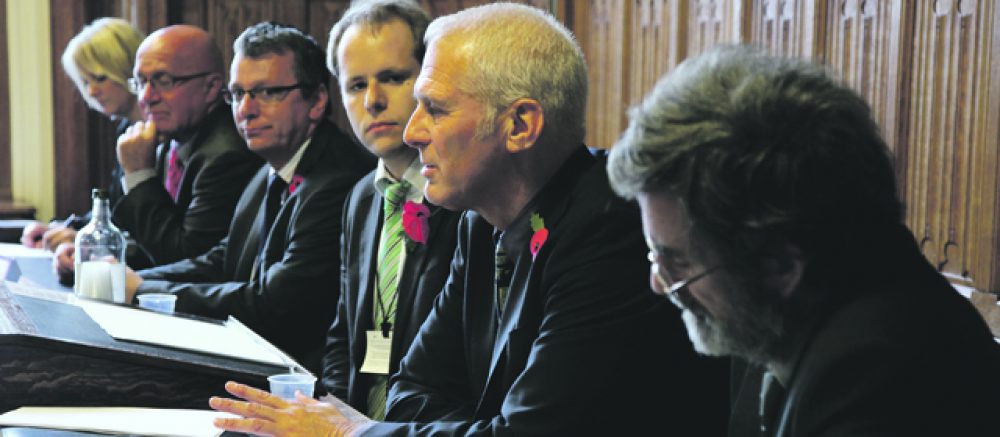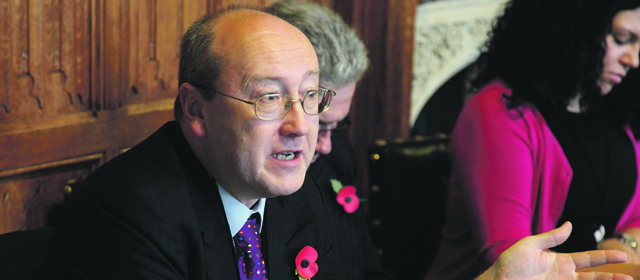The definition, purpose and identity of apprenticeships was criticised heavily at the ‘Growth in Apprenticeships: real or rebrand?’ debate held in the House of Commons last week.
More than eighty representatives from colleges, training providers and political parties discussed the rising number of apprentices aged 25 and above, and whether this was simply a ‘rebadging’ of the Train to Gain initiative.
Teresa Firth, Senior Skills Policy Manager at the Association of Colleges (AoC), said: “When is an apprenticeship really an apprenticeship?
“It’s perhaps not unjustifiable for Morrison’s to deliver a program in a certain amount of time, but it’s inappropriately named an apprenticeship.
“It may be appropriate for those individuals in that circumstance and at that time to meet those very specific needs – but it’s not an apprenticeship.”
As the funding and structure of vocational training continues to broaden, the very concept of what an apprenticeship should be was brought into question on numerous occassions..
Gordon Marsden MP, Shadow Minister for Further Education, Skills and Regional Growth, said: “What is an apprenticeship, and how do you define it? That is very key and very important.
“It’s almost worse for a young person to remain unemployed then to be put into a position of training that then doesn’t take them any further to the employment position.”
Judy Brandon, National Policy Manager at the Association of Employment and Learning Providers (AELP), said there also needed to be a debate about the funding of apprenticeships:
She said: “Once you’ve got that definition, you then have to work out who pays. Who pays for which elements in particular?”
The further education sector is often quick to pounce on private training providers, asking them to take greater responsibility for the needs of the economy and individual learners.
However, Mick Fletcher, a visiting Research Fellow at the Institute of Education and consultant, said that providers shouldn’t be blamed for taking advantage of the system.
“Providers are doing exactly what under the current system they’re supposed to do,” Mr Fletcher said.
“It raises some big question marks as to whether we want a system in which we try to design everything at the centre and then apply a series of sticks and carrots to try and drive providers in particular directions.”
A number of training providers were in attendance at the debate, but it was down to Karen Martin, Skills and Enterprise Director at Ixion Holdings Ltd, to justify the industry’s behaviour.
“The growth of apprenticeships was inevitable,” she said.
“Employers are being told, or sold, apprenticeships as opposed to NVQs, as that’s where the money is. That’s where the funding is now, and I don’t think it’s unreasonable for providers to be selling where the funding currently sits, and where the future for funding is.
“The government priority came out last year that apprenticeships were the priority, and I think the training providers have adapted exceedingly quickly to change their delivery models.”
Apprenticeships are often portrayed as a solution to the growing number of young people not in employment, education or training.
But as the number of new apprentices aged between 16 and 24 slows down, it’s inevitable that colleges are starting to look elsewhere as a means to hitting government targets.
Ray Shilling, Head of Employer Training Solutions at Westminster Kingsway College, said: “We try and do as many 16 to 18 year-olds as possible, but there’s not the jobs out there to apply for, so it’s become a stagnant market.
“When April hit our policy within the college was to concentrate on apprenticeships and grown apprenticeships even further – so the biggest area you can grow apprenticeships in is for learners aged 25 and above.”.
The majority of attendees agreed that in principal, there was nothing wrong with retraining or re-skilling employees. The problem is that once learners gain an apprenticeship qualification, sometimes it has an insignificant effect on their career.
A spokesperson from National Institute of Adult Continuing Education (NIACE) said: “People do need opportunities to progress throughout their working lives.
“People who are already working for the employer and then being put onto an apprenticeship program – sometimes that is not a bad thing. But if the person who goes through an apprenticeship stays on the same job, or doesnt get any pay rise, then is that really a good use of public money? I’d suggest not.”
If professionals can’t work out what an apprenticeship is, imagine what it must be like for the learner. Peter Cobrin, National Education Director at www.notgoingtouni.co.uk, said the government needed to provide secondary schools with better guidance and support.
“There’s an elephant in the room here. If you ask anybody what it the real problem with apprenticeships is, it is the fact that people don’t understand them, the people that need to know about them don’t know about them, and that is because the Department for Education (DfE) is almost ideologically predisposed against vocational learning, vocational training.”
Mr Cobrin added: “Is 12 weeks working in a catering establishment and coming up with an certificate – is that an apprenticeship? Or three years working in a engineering company – is that an apprenticeship? We haven’t got a handle around what it is.”
Funding and payments were a central issue to the discussions. As plans for a further education loans system continues to gain momentum, the apprenticeship wage was brought into question.
Martin Prescott, Managing Director of HT Skills, said: “It’s enormously difficult to get young people to go into a job at £19 a week when they can sit at home for £63 a week.
“That is a fundamental problem and there are only a few ways to solve it.”
Dave Hall, Director of Work-based Learning at Sunderland simply said: “I’m worried to death about the future of apprenticeships.”
The debate identified serious concerns not only with the funding mechanisms behind apprenticeships, but the very concept of vocational training.
Apprenticeships need to work out its ongoing identity crisis, and fast.










Looks like the debate represented some sanity within the Apprenticeships debates – BUT
“Martin Prescott, Managing Director of HT Skills, said: “It’s enormously difficult to get young people to go into a job at £19 a week when they can sit at home for £63 a week.”
Where does this come from?? – min wage £2.60 an hour X minimum 30 hours a week gives an absolute minimum weekly wage of £78 per week (which is bad enough) so WHERE does £19 a week come from????
HI Andrew, This is a typo, I was at the HofC debate and cannot recall Martin saying £19. It was an excellent debate which we hope to build upon for the conference we are holding in March to discuss all of these issues.
Thanks Lindsay AND Andrew. I compared £90/wk for an apprentice (not £19!) against JSA at £63/wk, but actually Andrew is right when he says 30hrs at the apprentice rate of £2.60hr earns just £78/wk. If young people can’t see the long-term value of getting a foot on the employment ladder, £15 for 30hrs work is never going to make the difference.
The Future Jobs Fund taught us that SMEs can create new jobs in good volumes – AND stimulate local economies – if only there was some short-term wage support to encourage them to do so. One wonders how bad youth unemployment has to get before somebody in Government finally joins the dots.